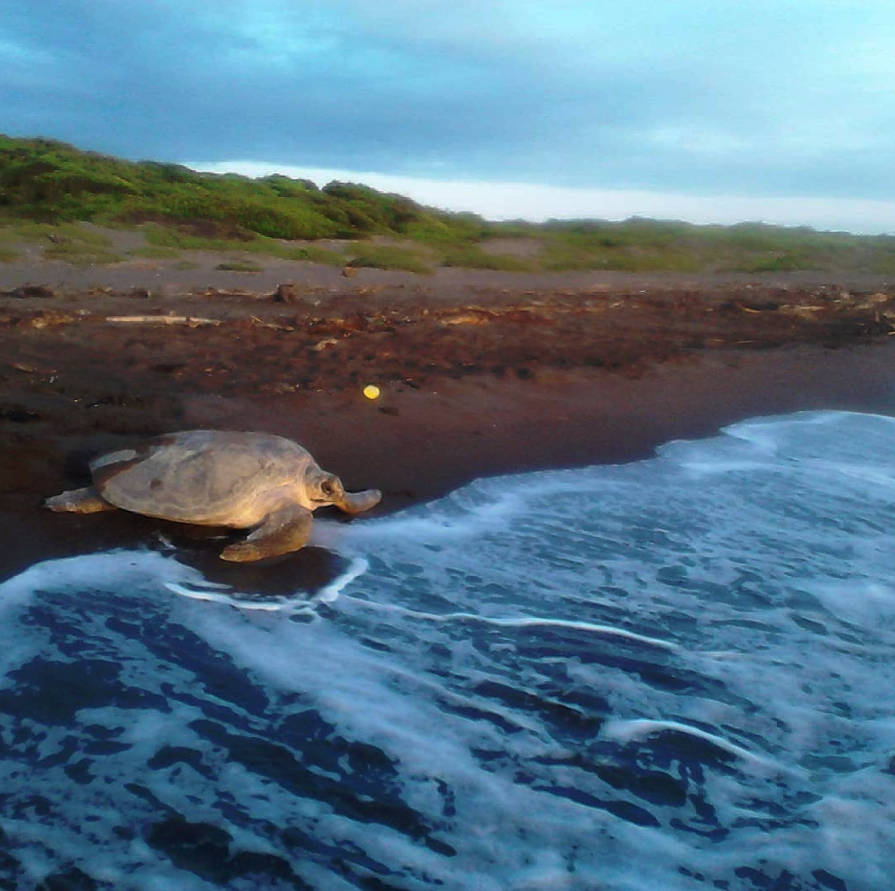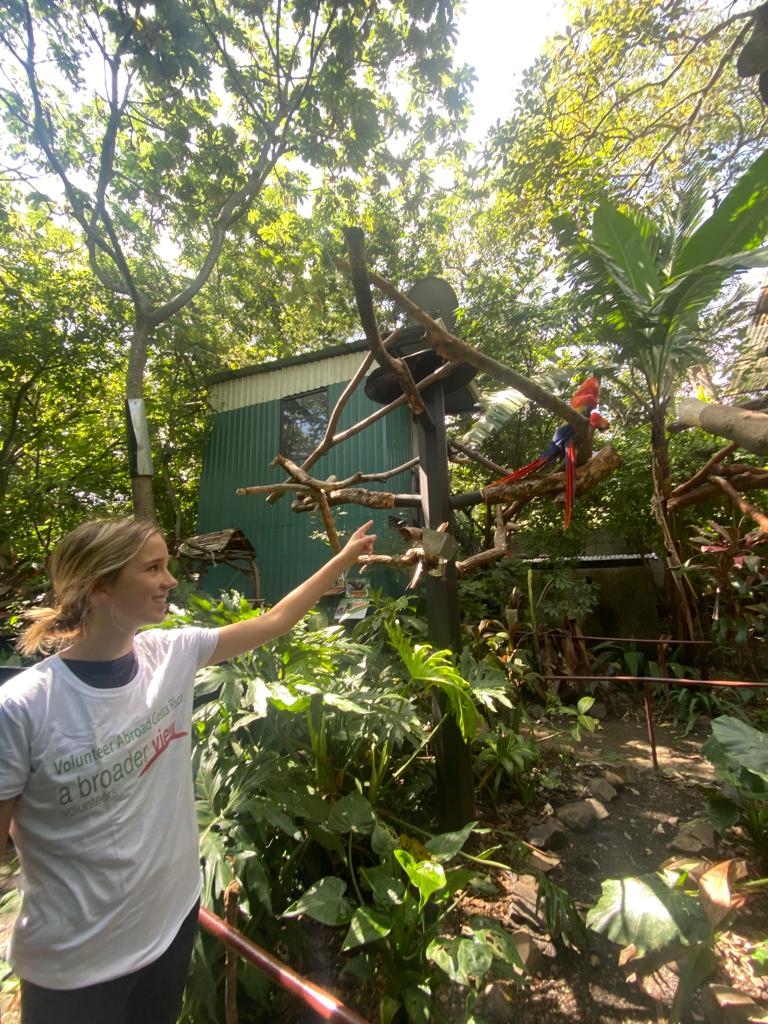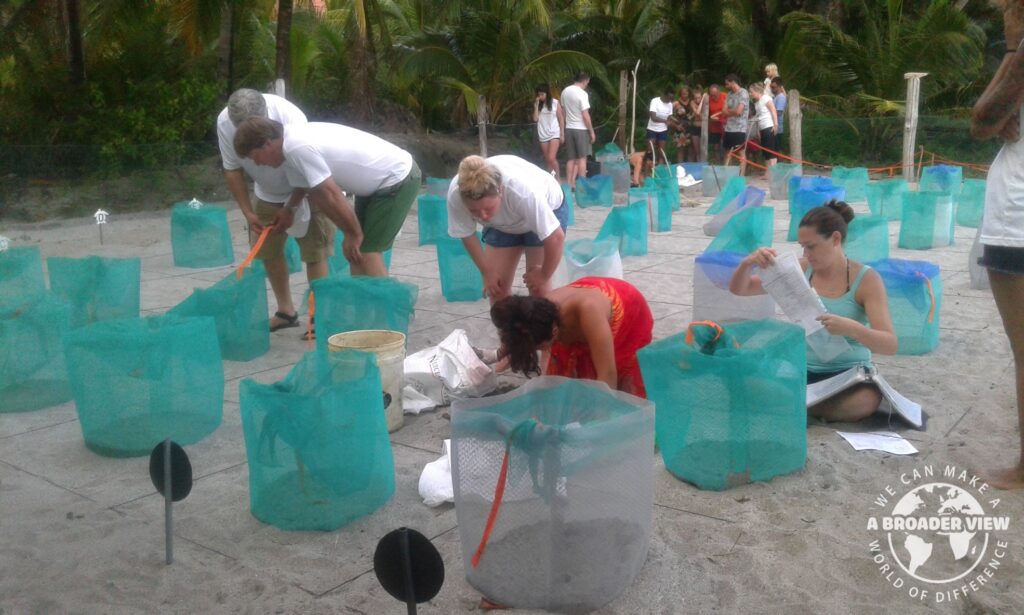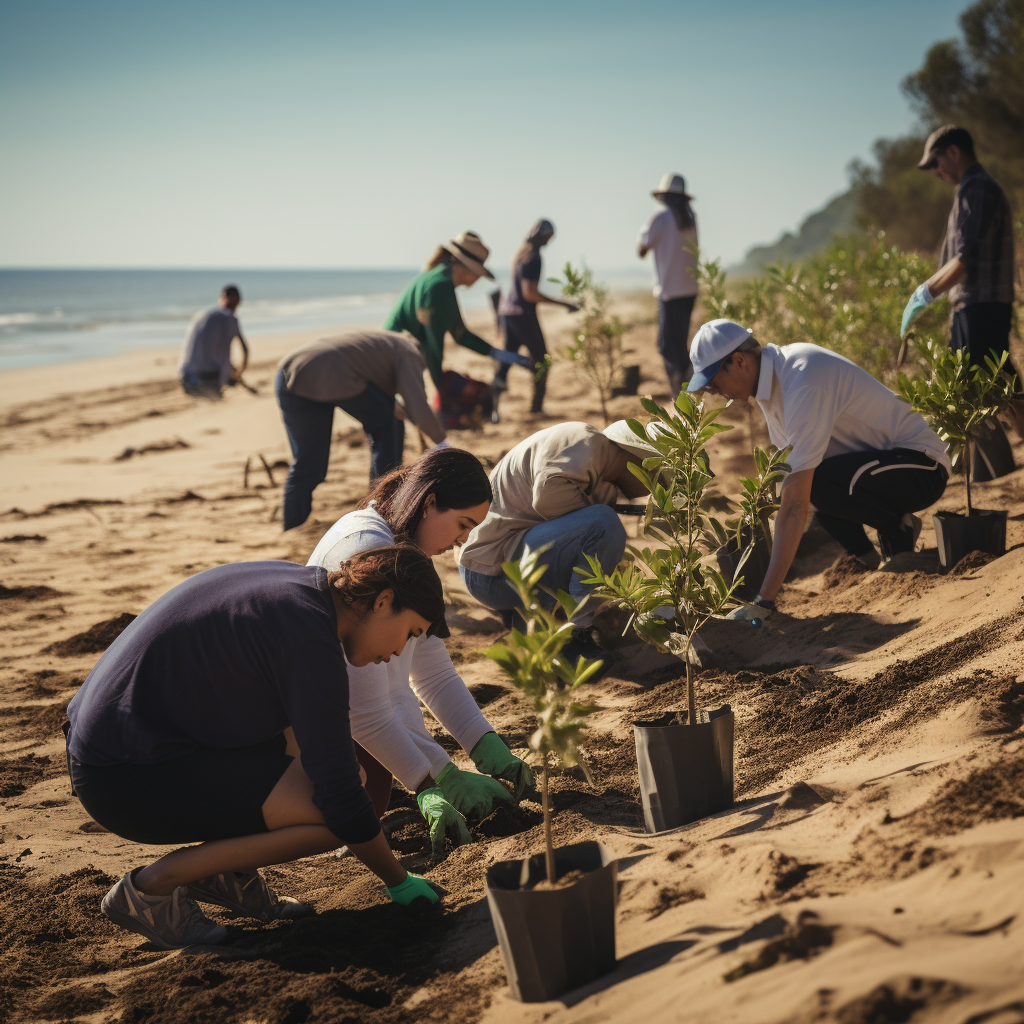Welcome to the world of eco-friendly volunteering! If you’re passionate about making a positive impact on the environment and communities around the world, then you’ve come to the right place. In this article, we will explore the concept of eco-friendly volunteering, its importance, and how you can get involved.
Why is eco-friendly volunteering important? With the increasing threats to our planet, such as climate change, deforestation, and pollution, it has become crucial for individuals to take action and play their part in preserving the environment. Eco-friendly volunteering provides an opportunity for people to contribute towards sustainable development and make a difference.
At the same time, eco-friendly volunteering offers numerous benefits for volunteers themselves. It allows you to immerse yourself in different cultures, develop new skills, and create lasting connections with like-minded individuals from around the world. Plus, it’s a chance to step out of your comfort zone and experience personal growth.
Ready to embark on an exciting journey of conservation, sustainability, and cultural exchange? Let’s dive deeper into the world of eco-friendly volunteering and discover how you can contribute to preserving our planet.

Understanding Eco-Friendly Volunteering
Definition and Importance
Eco-friendly volunteering, also known as sustainable volunteering or conservation volunteering, refers to participating in volunteer activities that are focused on preserving and protecting the environment. It involves working on projects that help restore ecosystems, conserve wildlife, promote sustainable practices, and raise awareness about environmental issues.
The importance of eco-friendly volunteering cannot be overstated. With the increasing threats to our planet, such as climate change, deforestation, and the loss of biodiversity, it is crucial for individuals and communities to take action. Eco-friendly volunteering provides an opportunity for people to make a positive impact by contributing their time, skills, and efforts towards environmental conservation.
Benefits for the Environment
Engaging in eco-friendly volunteering can yield numerous benefits for the environment, including:
- Restoration of ecosystems: Through projects like reforestation, habitat restoration, and water conservation, eco-friendly volunteers have the opportunity to contribute directly to the restoration of ecosystems and the protection of endangered species.
- Promotion of sustainable practices: Eco-friendly volunteering programs often involve educating local communities about sustainable practices such as recycling, energy conservation, and organic farming. By spreading awareness and implementing these practices, volunteers can help reduce the carbon footprint and contribute to a more sustainable future.
- Conservation of natural resources: Volunteer projects focused on sustainable farming, efficient water usage, and renewable energy initiatives help protect natural resources by advocating for practices that minimize waste and promote the efficient use of resources.
Benefits for Volunteers
Engaging in eco-friendly volunteering is not only beneficial for the environment but also for the volunteers themselves. Some of the personal benefits include:
- Skill development: Eco-friendly volunteering provides an opportunity for volunteers to develop various skills such as team-building, problem-solving, leadership, and project management. These skills can be valuable both personally and professionally.
- Cultural exchange: Volunteering in different parts of the world allows volunteers to immerse themselves in new cultures, learn from local communities, and gain a deeper understanding of global environmental challenges.
- Personal growth: Volunteering in an eco-friendly capacity can be a transformative experience that fosters personal growth and self-discovery. It allows individuals to step out of their comfort zone, challenge themselves, and develop a sense of purpose and fulfillment.
- Networking and connections: Engaging in eco-friendly volunteering provides an opportunity to connect with like-minded individuals from diverse backgrounds, forming lasting friendships and professional networks.
In the next section, we will explore how to choose an eco-friendly volunteering program that aligns with your interests and values.

Choosing an Eco-Friendly Volunteering Program
If you’ve decided to embark on an eco-friendly volunteering journey, congratulations! Now comes the exciting part – choosing the perfect volunteering program that aligns with your values and interests. Here are some essential factors to consider when selecting an eco-friendly volunteering program:
Researching Reputable Organizations
When it comes to volunteering abroad, it’s crucial to choose a reputable organization that is committed to sustainability and making a positive impact on the environment. Here are a few things to keep in mind during your research:
- Look for organizations with a proven track record in eco-friendly initiatives and a transparent mission statement.
- Check if the organization is registered and accredited by recognized bodies in the volunteering sector.
- Read reviews and testimonials from previous volunteers to get an idea of their experiences and the organization’s credibility.
Matching Your Skills and Interests
To maximize your impact and enjoyment while volunteering, it’s essential to find a program that matches your skills, interests, and passion for the environment. Consider the following:
- Assess your skills and determine how they can be useful in an eco-friendly volunteering setting. For example, if you have a background in conservation biology, you may want to choose a project focusing on wildlife preservation.
- Think about the specific environmental issues that resonate with you the most, such as marine conservation, sustainable agriculture, or renewable energy.
- Look for programs that offer a variety of projects or allow you to rotate between different initiatives, so you can explore and contribute to multiple areas of eco-friendly volunteering.
Considering Location and Duration
Eco-friendly volunteering programs exist all around the world, so consider your preferred location and the duration of your trip. Here are a few factors to keep in mind:
- Research the environmental challenges specific to different regions and countries. For example, if you’re passionate about rainforest conservation, you might consider volunteering in countries like Brazil or Costa Rica.
- Think about the climate and conditions you’re comfortable working in. If you’re not a fan of extreme heat, you may want to avoid programs in desert regions.
- Consider your time availability. Some programs may require a minimum commitment of a few weeks, while others may allow shorter stays. Assess how much time you can dedicate to volunteering and choose a program that fits your schedule.
By considering these factors, you can narrow down your options and find an eco-friendly volunteering program that is not only aligned with your values but will also provide you with a meaningful and rewarding experience. So get ready to make a positive impact on the planet and embark on a journey that will leave a lasting impression on you and the environment!
Types of Eco-Friendly Volunteering Projects
When it comes to eco-friendly volunteering, there are various types of projects you can get involved in that focus on preserving and protecting the environment. These projects allow you to make a positive impact while also gaining valuable experience and knowledge. Here are some popular types of eco-friendly volunteering projects:
1. Conservation and Wildlife Preservation
Do you have a passion for protecting wildlife and their natural habitats? Conservation and wildlife preservation projects are a great way to contribute to the preservation of endangered species and ecosystems. These projects often involve tasks such as:
- Conducting research on wildlife populations and their behaviors
- Assisting with habitat restoration and improvement projects
- Participating in monitoring and tracking programs to ensure the well-being of animal species

2. Sustainable Farming and Agriculture
If you have an interest in sustainable agriculture and organic farming practices, volunteering on sustainable farming projects can be a rewarding experience. These projects focus on promoting environmentally-friendly farming methods to protect soil fertility, conserve water resources, and reduce the use of harmful pesticides. Activities may include:
- Assisting with planting and cultivating organic crops
- Participating in farm-to-table initiatives and promoting local food production
- Learning about sustainable farming techniques such as permaculture and regenerative agriculture
3. Environmental Education and Awareness
One of the key aspects of eco-friendly volunteering is educating and raising awareness about environmental issues. Organizations often run projects that aim to educate local communities and create a sense of environmental stewardship. These projects involve:
- Developing and delivering educational workshops and seminars
- Organizing community outreach programs to promote recycling, waste reduction, and sustainable living practices
- Creating educational materials such as brochures, posters, and online resources to spread awareness
4. Renewable Energy Initiatives
Renewable energy projects focus on promoting sustainable energy sources and reducing dependency on fossil fuels. Volunteering in renewable energy initiatives allows you to contribute to the development and implementation of clean energy technologies. Some tasks involved in these projects may include:
- Assisting with the installation and maintenance of solar panels and wind turbines
- Conducting energy audits in buildings and communities to identify areas for improvement
- Educating communities on the benefits and importance of renewable energy
By participating in any of these eco-friendly volunteering projects, you not only contribute to a greener and more sustainable planet, but you also gain invaluable skills and knowledge about environmental conservation and sustainable practices. Plus, you’ll have the opportunity to meet like-minded individuals from different backgrounds and cultures who share your passion for making a difference.
So, whether you’re interested in wildlife preservation, sustainable farming, environmental education, or renewable energy, there’s a wide range of projects to choose from. It’s important to select a project that aligns with your interests and skills, as this will make your volunteering experience even more fulfilling and enjoyable. So, go ahead and make a positive impact on the planet through eco-friendly volunteering!

Preparing for Your Eco-Friendly Volunteer Trip
Planning and preparing for your eco-friendly volunteer trip is an exciting and crucial part of the experience. By being well-prepared, you can ensure that your trip goes smoothly and that you make the most of your time contributing to environmental conservation efforts. Here are some important steps to take when preparing for your eco-friendly volunteer trip:
Budgeting and Fundraising
- Create a budget that includes all your expenses such as airfare, accommodation, meals, transportation, and any program fees.
- Research fundraising options such as crowdfunding platforms, organizing events, or reaching out to family, friends, and local businesses for support.
- Consider applying for grants or scholarships specifically designed for volunteering abroad.
Obtaining Necessary Travel Documents
- Check the passport validity requirements for the country you plan to volunteer in and ensure that your passport is valid for at least six months from the date of entry.
- Obtain any necessary visas for your destination and make sure to understand the application process and timeline.
- Look into any required vaccinations or medical preparations needed for your destination. Consult with a travel health professional for recommendations.
Packing Essential Items
- Pack lightweight and sustainable clothing suitable for the climate of your destination. Opt for versatile items that can be layered and mix-and-matched.
- Don’t forget to pack sturdy shoes, a reusable water bottle, sun protection (such as a hat and sunscreen), insect repellent, and a first aid kit.
- Consider packing reusable items like a tote bag, cutlery set, and travel-sized toiletries to minimize waste and promote eco-consciousness on your trip.
Learning Local Customs and Language
- Research the culture, customs, and traditions of your destination to ensure that you can respect and adapt to local norms.
- Learn a few basic phrases in the local language to facilitate communication and show respect towards the local community.
- Familiarize yourself with environmental challenges and issues specific to your destination, as well as the efforts being made to address them.
Remember, preparation is key for a successful eco-friendly volunteer trip. Take the time to plan and organize your trip, and be open to embracing new experiences and challenges. By taking these steps, you are setting yourself up for a meaningful and impactful journey. So, get ready to make a positive difference and embark on an incredible adventure!

Making a Positive Impact During Your Volunteering
When you embark on an eco-friendly volunteering experience, you have the incredible opportunity to make a positive impact on the environment and the communities you visit. By following sustainable practices, participating in conservation activities, educating local communities, and promoting environmental awareness, you can contribute to a more sustainable and greener future. Here are some tips on how to make the most of your time as an eco-friendly volunteer:
Following Sustainable Practices
- Reduce, Reuse, Recycle: Practice the three R’s of sustainability by minimizing waste, reusing items whenever possible, and recycling materials. Look for recycling facilities and composting options in your volunteering destination.
- Conserve Energy and Water: Be mindful of your energy and water consumption. Turn off lights and appliances when not in use, take shorter showers, and use water-efficient practices.
- Use Eco-Friendly Products: Choose biodegradable and eco-friendly products, such as toiletries and cleaning supplies, to minimize negative impacts on the environment.
- Support Local and Sustainable Businesses: Purchase goods and services from local and sustainable businesses to contribute to the local economy and promote sustainable practices. Eat at restaurants that serve locally sourced and organic food.
Participating in Conservation Activities
- Engage in Habitat Restoration: Volunteer for activities that involve planting trees, removing invasive species, and restoring natural habitats. These activities contribute to the conservation of biodiversity and help restore ecosystems.
- Assist in Wildlife Monitoring: Join projects that focus on wildlife monitoring and research. By documenting animal populations and behaviors, you can provide valuable data for conservation efforts.
- Help with Beach Cleanups: Coastal areas are especially vulnerable to pollution. Participate in beach cleanups to help remove trash and debris, ensuring the safety and health of marine life.
Educating Local Communities
- Teach Environmental Education: Volunteer in schools or community centers to educate local children and communities about environmental issues and sustainable practices. By sharing your knowledge and experiences, you can inspire others to make eco-friendly choices.
- Run Workshops and Training: Organize workshops and training sessions on topics like waste management, recycling, and sustainable farming techniques. Empowering local communities with practical knowledge can lead to long-term sustainable practices.

Promoting Environmental Awareness
- Create and Share Content: Utilize social media platforms and blogs to create and share content about your volunteering experiences. Raise awareness about environmental issues and inspire others to take action for a greener planet.
- Support Environmental Campaigns: Participate in or initiate campaigns focused on environmental conservation, recycling, and sustainable living. Collaborate with local organizations to maximize your impact.
- Engage in Dialogue: Foster conversations with locals and fellow volunteers about the importance of conservation and sustainable practices. Encourage open discussions that promote understanding and inspire change.
By actively engaging in these activities and applying sustainable practices during your volunteering, you can leave a positive and lasting impact on the environment and the communities you work with. Your efforts can create a ripple effect, inspiring others to follow suit and contribute to a more sustainable and eco-friendly world.
Benefits and Rewards of Eco-Friendly Volunteering
Eco-friendly volunteering not only allows you to make a positive impact on the environment but also offers a range of benefits and rewards for volunteers. Whether you are passionate about conservation, interested in sustainable development, or simply want to explore a new culture, here are some of the incredible benefits you can experience through eco-friendly volunteering:
1. Personal Growth and Skill Development
Volunteering in eco-friendly projects provides ample opportunities for personal growth and skill development. As you immerse yourself in these projects, you’ll gain valuable skills such as teamwork, problem-solving, communication, and project management. These skills are not only beneficial for your volunteer work but also transferable to other areas of your life, including your career.
2. Cultural Exchange and Global Perspective
One of the most rewarding aspects of eco-friendly volunteering is the chance to immerse yourself in a different culture and gain a global perspective. By working alongside local communities, you’ll learn about their traditions, customs, and way of life. This cultural exchange fosters mutual understanding and appreciation, helping to break down barriers and promote harmony between people from different backgrounds.
3. Contributing to Sustainable Development
Through eco-friendly volunteering, you have the opportunity to contribute directly to sustainable development. By participating in conservation, sustainable farming, or renewable energy initiatives, you are helping to protect natural resources and mitigate the impact of climate change. Your efforts can make a lasting difference in preserving the planet for future generations.
4. Creating Lasting Connections
Eco-friendly volunteering brings people together who share a common vision of a sustainable future. It allows you to form meaningful connections with fellow volunteers, local communities, and like-minded individuals from around the world. These connections can lead to lifelong friendships, networking opportunities, and even potential collaborations in addressing environmental issues.
“Volunteering is the ultimate exercise in democracy. You vote in elections once a year, but when you volunteer, you vote every day about the kind of community you want to live in.” – Author Unknown
Tips for Maximizing the Benefits of Eco-Friendly Volunteering
To make the most out of your eco-friendly volunteering experience, keep the following tips in mind:
- Embrace new experiences: Be open to trying new things and stepping out of your comfort zone. This will allow you to fully immerse yourself in the volunteer project and make the most of the experience.
- Be respectful and culturally sensitive: Show respect for the local customs, traditions, and beliefs of the community you are volunteering with. This will foster positive relationships and enhance your overall experience.
- Stay committed: Volunteering can be challenging at times, both physically and emotionally. However, it’s important to stay committed and focused on the impact you are making. Remember that even small contributions can create significant change.
- Reflect on your experience: Take time to reflect on your volunteering journey and the lessons you have learned. This self-reflection can help you grow personally and professionally, and it can also inspire you to continue making a difference in the future.
Eco-friendly volunteering offers a wonderful opportunity to connect with the environment, make a positive impact, and gain invaluable experiences. So, if you’re ready to embark on a meaningful journey, consider joining an eco-friendly volunteer program and start making a difference today!

Conclusion
Eco-friendly volunteering is not only a rewarding experience for individuals, but it also plays a crucial role in preserving the planet for future generations. By choosing to participate in sustainable projects and conservation efforts, volunteers can make a positive impact on the environment and local communities around the world.
Throughout this article, we have explored the definition and importance of eco-friendly volunteering, as well as the benefits it brings to both the environment and the volunteers themselves. We have also discussed how to choose an eco-friendly volunteering program, the different types of projects available, and the necessary preparations for a volunteering trip.
During your eco-friendly volunteer trip, it is essential to follow sustainable practices, actively participate in conservation activities, educate local communities, and promote environmental awareness. By doing so, you can make a significant contribution to the preservation of our planet.
Engaging in eco-friendly volunteering not only leads to personal growth and skill development, but it also provides opportunities for cultural exchange and a global perspective. Additionally, it allows you to contribute to sustainable development and create lasting connections with like-minded individuals.
If you are ready to embark on an eco-friendly volunteer journey, consider partnering with A Broader View Volunteers (www.abroaderview.org). As a leading international volunteer organization, A Broader View offers meaningful and life-changing experiences in over 32 countries across Africa, Asia, Central America, and South America. With a strong emphasis on cultural exchange, community development, and sustainable projects, you can be assured that your volunteering efforts will have a lasting and positive impact.
Start your eco-friendly volunteering adventure today and join hands with A Broader View to make a difference in the world while experiencing the beauty and diversity of different cultures and environments.
Remember, the small actions we take today can lead to significant changes tomorrow. Together, we can preserve the planet for generations to come.
Frequently Asked Questions
- What is eco-friendly volunteering?
Eco-friendly volunteering, also known as sustainable volunteering, involves participating in projects and initiatives that contribute to the preservation and protection of the environment while minimizing negative impacts.
- How can I volunteer with www.abroaderview.org for eco-friendly initiatives?
To volunteer with www.abroaderview.org for eco-friendly initiatives, you can visit their website and browse through their available programs. They offer a range of eco-focused projects around the world, such as wildlife conservation, environmental research, sustainable farming, and more.
- What are the benefits of eco-friendly volunteering?
Eco-friendly volunteering allows you to make a positive impact on the environment, raise awareness about environmental issues, gain valuable skills and knowledge, connect with local communities, and contribute to the global effort of preserving our planet.
- Is prior experience required to participate in eco-friendly volunteering programs?
Prior experience is not always required to participate in eco-friendly volunteering programs. Many organizations, including www.abroaderview.org, offer programs suitable for both beginners and experienced volunteers. They provide necessary training and guidance to ensure you can actively contribute.
- What should I pack for eco-friendly volunteering projects?
Packing essentials for eco-friendly volunteering projects may vary depending on the specific project and location. However, it’s advisable to pack items such as reusable water bottles, sturdy shoes, lightweight and eco-friendly clothing, insect repellent, sunscreen, and a positive attitude towards sustainability and conservation efforts.
-
Volunteering Abroad with Medical Missions: Make a Difference Today

Join medical group trips, Nurses Without Borders, and Dentists Without Borders to make a difference in underserved communities worldwide. Learn about the countries where these programs operate and read real-life experiences from volunteers. Volunteering overseas is an excellent opportunity to make a difference in the lives of others while experiencing new cultures and forging unforgettable…
-
Embrace Overseas Service | Transform Lives Through Global Volunteerism

International Volunteering: Discover Meaningful Travel and Transform Lives with A Broader View
-
A World of Opportunities: Unveiling the Benefits of International Volunteer Programs

Discover numerous benefits of international volunteer programs and unleash a world of rewarding opportunities with our in-depth guide.



